This is an introduction into the work of IFEES and GEDC, two global engineering education organizations that work closely with academic leaders, deans, faculty, corporations and students as well as UNESCO, the World Bank, WFEO, and OAS to leverage collective strengths and advance engineering education around the world. This introduction will provide some details and partnerships of specific IFEES/GEDC global activities; highlight some of the challenges and attributes required of the new generation of engineers, and also raise the consciousness of our global community about the current climate crisis and the role that engineers can play to address these challenges.
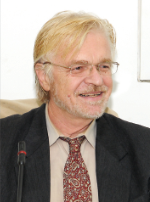 Dr. Hans J. Hoyer is the Secretary General of the International Federation for Engineering Education Societies (IFEES), Executive Secretary of the Global Engineering Deans Council (GEDC) and Resident Scholar in Global Engineering at George Mason University. He received his Ph.D. from American University and was a postdoctoral fellow at the Organization of American States; a Visiting Scholar at the Center for International Studies at MIT; a Fellow at Harvard’s School of Education and a Visitor at the Kennedy School of Government and dean of the graduate program at the School for International Training, World Learning, Brattleboro, Vermont. He is an Honorary University Professor in Hungary, India, Peru and Kazakhstan. In early 2000, Hans J. Hoyer was CEO of World Links/World Bank where he worked globally on issues related to secondary education and social studies. He obtained his undergraduate degree from the University of Georgia; has led international development organizations in Latin America; Africa and Asia; lived in 20 countries and visited over 150. He started his career as a Peace Corps Volunteer in Chile after obtaining his BA at the U of Ga. Written, published books, articles related to global issues. Advisor to several universities in China, Latin America, Iraq and global companies.
Dr. Hans J. Hoyer is the Secretary General of the International Federation for Engineering Education Societies (IFEES), Executive Secretary of the Global Engineering Deans Council (GEDC) and Resident Scholar in Global Engineering at George Mason University. He received his Ph.D. from American University and was a postdoctoral fellow at the Organization of American States; a Visiting Scholar at the Center for International Studies at MIT; a Fellow at Harvard’s School of Education and a Visitor at the Kennedy School of Government and dean of the graduate program at the School for International Training, World Learning, Brattleboro, Vermont. He is an Honorary University Professor in Hungary, India, Peru and Kazakhstan. In early 2000, Hans J. Hoyer was CEO of World Links/World Bank where he worked globally on issues related to secondary education and social studies. He obtained his undergraduate degree from the University of Georgia; has led international development organizations in Latin America; Africa and Asia; lived in 20 countries and visited over 150. He started his career as a Peace Corps Volunteer in Chile after obtaining his BA at the U of Ga. Written, published books, articles related to global issues. Advisor to several universities in China, Latin America, Iraq and global companies.
As emergent technologies become increasingly integrated into formal learning environments, a new kind of classroom emerge: CrossActionSpaces. These spaces can be characterized as informal-in-formal spaces in which learning takes place across traditional boundaries. In this keynote, Isa Jahnke will present meaningful learning with technologies versus learning from technologies and the framework of Digital Didaktik Designs (DDD). DDD can be applied to design, develop and evaluate online, blended or mobile learning practices. Examples of real classrooms will be illustrated. Just a side note: Didactics in the North American discourse and Didaktik as evolved in Europe have completely different meanings.
 Prof. Dr. Isa Jahnke is Director of the Information Experience Lab , a usability and user experience laboratory, and Associate Professor of Information Science and Learning Technologies with the University of Missouri-Columbia, USA. She was Professor of Interactive Media and Learning at Umeå University, Sweden (2011-201) and Assistant Professor at TU Dortmund, Center for Research on Higher Education (2008-2011). Funded projects include creativity in higher education (DaVinci, German BMBF, 2008-2011), Digital Didactical Designs (Swedish Research Council, 2014-2015), Learning Expeditions (MU Interdisciplinary Innovation Fund, 2016-2017). In 2018, Isa Jahnke received a U.S. National Science Foundation Award (Co-PI, together with the MU College of Engineering PI Prasad Calyam); the team investigates user experience in cybersecurity practices to develop novel solutions. She has over 145 publications. Her research focuses on sociotechnical-pedagogical design for human-centered work and learning. Her website is: https://www.isa-jahnke.com
Prof. Dr. Isa Jahnke is Director of the Information Experience Lab , a usability and user experience laboratory, and Associate Professor of Information Science and Learning Technologies with the University of Missouri-Columbia, USA. She was Professor of Interactive Media and Learning at Umeå University, Sweden (2011-201) and Assistant Professor at TU Dortmund, Center for Research on Higher Education (2008-2011). Funded projects include creativity in higher education (DaVinci, German BMBF, 2008-2011), Digital Didactical Designs (Swedish Research Council, 2014-2015), Learning Expeditions (MU Interdisciplinary Innovation Fund, 2016-2017). In 2018, Isa Jahnke received a U.S. National Science Foundation Award (Co-PI, together with the MU College of Engineering PI Prasad Calyam); the team investigates user experience in cybersecurity practices to develop novel solutions. She has over 145 publications. Her research focuses on sociotechnical-pedagogical design for human-centered work and learning. Her website is: https://www.isa-jahnke.com
Digital technologies become more and more pervasive within our daily lives and already affect our ways of living and learning on a holistic level. Data-driven technologies such as Machine Learning or other applications of Artificial Intelligence are being enabled by profiling our actions and our behavior on the basis of Big Data. These profiling capabilities are already exploited by many key players of the industry and in the shared economy sector to reach profitable margins. In his talk, Max Hoffmann focuses on how similar methods can be applied to reach a higher success in teaching and learning by applying contextual information of our media usage and other meta-information about ourselves. What are the chances and which are the risks of such an approach within our networked world and how can future universities use these technologies in shaping future generations of scientists? One of the applications of such learning approach is manifested in an Industry 4.0 lecture at RWTH Aachen University, in which students learn to deal with data-driven technologies on an industrial scale.
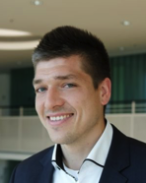 Dr. Max Hoffmann is a scientific researcher at the Chair of Information Management in Mechanical Engineering at RWTH Aachen University. From 2012 to 2017 he concentrated on projects with an emphasis on digital technologies for industrial as well as teaching and learning applications. Since 2016, he has been head of the "Industrial Big Data" research group, which focuses on the needs of large production companies in the context of digitization. Dr. Hoffmann passed his doctorate with distinction in 2017 with a focus on interoperability of self-optimizing multi-agent systems in the context of modern manufacturing. In recognition of his dissertation, Dr. Hoffmann was awarded the Borcher’s Badge for outstanding scientific achievements at RWTH Aachen University in 2018. He is the author of numerous scientific articles and book chapters in the context of "Internet of Things", "Cyber-physical Production Systems", "Interoperability in Technical Systems", "Multi-Agent Systems", "Artificial Intelligence", "Big Data" and "Digital Learning Technologies" as well as the author of numerous studies in the fields of "Industry 4.0".
Dr. Max Hoffmann is a scientific researcher at the Chair of Information Management in Mechanical Engineering at RWTH Aachen University. From 2012 to 2017 he concentrated on projects with an emphasis on digital technologies for industrial as well as teaching and learning applications. Since 2016, he has been head of the "Industrial Big Data" research group, which focuses on the needs of large production companies in the context of digitization. Dr. Hoffmann passed his doctorate with distinction in 2017 with a focus on interoperability of self-optimizing multi-agent systems in the context of modern manufacturing. In recognition of his dissertation, Dr. Hoffmann was awarded the Borcher’s Badge for outstanding scientific achievements at RWTH Aachen University in 2018. He is the author of numerous scientific articles and book chapters in the context of "Internet of Things", "Cyber-physical Production Systems", "Interoperability in Technical Systems", "Multi-Agent Systems", "Artificial Intelligence", "Big Data" and "Digital Learning Technologies" as well as the author of numerous studies in the fields of "Industry 4.0".
Technology is evolving at rapid speed and the payments technology ecosystem is actively moving along side the same momentum. Financial service providers have ongoing initiatives and plans for emerging technologies that they would like to offer to their clients. UL plays a crucial in ensuring safety, security, and compliance for new implementations in the payments technology ecosystem. In this session, we will discuss the test tools we use to simulate payments transactions for the payments networkers and acquirers to evaluate and certify before releasing new updates into the market space. The conversation will focus on how the players in the payments technology ecosystem view virtual payment technology test tools and the roadmap and integration needed when developing these tools.
 Francis Limousy is Product Manager at UL. He spent the past ten years focusing on large Digital Enablement initiatives through participation in various global projects. He supports organizations in creating knowledge from the initial study to the final implementation process.
Francis Limousy is Product Manager at UL. He spent the past ten years focusing on large Digital Enablement initiatives through participation in various global projects. He supports organizations in creating knowledge from the initial study to the final implementation process.
Francis has been involved in EMV, Contactless and Mobile Payments (SE-based, HCE/Cloud-based and Tokenization). He has hands-on experience and in-depth knowledge on TSP, Secure Elements and Cloud-based platforms. Francis holds a Master's Degree in Computer Science from University of Paris-Est.
 Paul Miller is a Team Leader and SME working in the Fiserv Test Center at UL. He has actively worked on certifying over 100 point of sale (POS) units through EMV L3 certifications over the past two years. He also provides support internally in managing customer relationships, providing technical knowledge, and supporting new initiatives.
Paul Miller is a Team Leader and SME working in the Fiserv Test Center at UL. He has actively worked on certifying over 100 point of sale (POS) units through EMV L3 certifications over the past two years. He also provides support internally in managing customer relationships, providing technical knowledge, and supporting new initiatives.
Paul has been involved in EMV, NFC, and AFD (Automated Fuel Dispensers) from the certification, compliance, and testing side. He has hands-on experience and in-depth knowledge on ISO 8583, EMV transaction flow, and payment network scheme requirements.
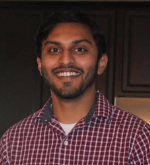 Basil Ittiavira is a Payment Specialist at UL. He has been working in the finance and payments sector for over 5 years. He started his career in banking and has been currently specializing in payments industry, mainly in contactless payments technology. A subject matter expert (SME) in EMV and mobile payment systems, Basil is currently helping major OEMs and issuers in implementing their mobile payment solutions. He holds a Master’s Degree in Engineering Management from the University of California, Irvine.
Basil Ittiavira is a Payment Specialist at UL. He has been working in the finance and payments sector for over 5 years. He started his career in banking and has been currently specializing in payments industry, mainly in contactless payments technology. A subject matter expert (SME) in EMV and mobile payment systems, Basil is currently helping major OEMs and issuers in implementing their mobile payment solutions. He holds a Master’s Degree in Engineering Management from the University of California, Irvine.
The shifting of demographics and the pace of technology advances are contributing to a skills gap. This discrepancy between the skills of workers and the skills that are needed for the US to remain globally competitive is one of the most talked about trends in the US workforce currently. This topic is at the forefront of most company agendas and we are seeing action in the form of re-training current workers, recruiting from more diverse and untapped groups, as well as collaborating with educational institutions to build a pipeline of new talent that possess these needed skills. It is estimated that in less than 10 years jobs in advanced manufacturing, engineering and computing will each grow by double digits. To meet this need, industry and academia must partner now to prepare a workforce ready for Industry 4.0 and beyond. In her talk, Melanie Spare focuses on how industry 4.0 and digitalization are changing the needs of industry and the transformation needed to meet this demand.
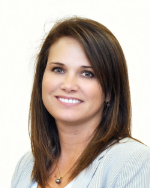 Melanie Spare is the Academic Enablement Director at Siemens Digital Industries Software Division which offers an integrated portfolio of software and services for electronic and mechanical design, system simulation, manufacturing, operations and lifecycle analytics across a broad spectrum of industry domains. Ms. Spare holds an MBA in finance and brings 20+ years of sales, marketing and business development experience in the world of factory automation to her current role in which she is responsible for empowering the next generation of digital talent through collaborative and innovative partnerships that help to bridge the gap between technology, academia and industry.
Melanie Spare is the Academic Enablement Director at Siemens Digital Industries Software Division which offers an integrated portfolio of software and services for electronic and mechanical design, system simulation, manufacturing, operations and lifecycle analytics across a broad spectrum of industry domains. Ms. Spare holds an MBA in finance and brings 20+ years of sales, marketing and business development experience in the world of factory automation to her current role in which she is responsible for empowering the next generation of digital talent through collaborative and innovative partnerships that help to bridge the gap between technology, academia and industry.
The automation solutions applied in manufacturing have evolved significantly over the past 30 years. PLC technology replaced electro-mechanical relay circuits initiating the beginning of fully automated control systems in manufacturing. Over time, Human Machine Interfaces (HMIs), deterministic networking for remote IO on ethernet, integrated safety solutions, motion and wireless have evolved to advance automation solutions for machine and production lines. The industrial revolution is driving innovations within automation empowering manufacturers to reduce engineering costs and time to market. Learn which basic automation concepts and solutions are opening the future of manufacturing in the digital world
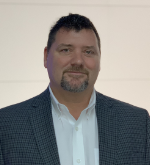 John DeTellem, the product marketing manager for the automation engineering software (TIA Portal), is helping customers recognize their full potential in concepts around the future of automation. The fundamental base of automation and engineering software enables the key concept of virtual commission, Edge, Apps, AI, and VR/AR. John has had a three-year assignment in Germany on the Product Management & Development team for usability of automation hardware and software, and then moved on to a two-year assignment in Australia leading the product launch of the new products. John started his career 30 years ago as an Automation Project Engineer/Project Manager on the manufacturing floor implementing automation solutions based on Allen-Bradley, and more specifically in the automotive industry leading projects for Chrysler and BMW primarily based on Allen-Bradley PLC5/CLX, working for Allen-Bradley / Rockwell Automation. He has a BSEE from the University of Iowa.
John DeTellem, the product marketing manager for the automation engineering software (TIA Portal), is helping customers recognize their full potential in concepts around the future of automation. The fundamental base of automation and engineering software enables the key concept of virtual commission, Edge, Apps, AI, and VR/AR. John has had a three-year assignment in Germany on the Product Management & Development team for usability of automation hardware and software, and then moved on to a two-year assignment in Australia leading the product launch of the new products. John started his career 30 years ago as an Automation Project Engineer/Project Manager on the manufacturing floor implementing automation solutions based on Allen-Bradley, and more specifically in the automotive industry leading projects for Chrysler and BMW primarily based on Allen-Bradley PLC5/CLX, working for Allen-Bradley / Rockwell Automation. He has a BSEE from the University of Iowa.
Connected devices have provided the manufacturing industry with new opportunities in the automation of factory processes. In the old days, people worked in production lines executing repetitive tasks to complete a process. These functions are now carried out in an automated fashion, with every function being measured, monitored, metered, and stored, forming a digital twin of the physical device so issues can be audited, problems can be identified, and processes can be improved. In smart factories, outdated devices and traditional PLCs with proprietary real-time operating systems are being replaced with connected devices offering new opportunities along with new challenges, such as the need for advanced tools and technology to secure these devices. In this session, Dan Schaffer, Senior Product Manager for Networking and Security at Phoenix Contact USA, will discuss: 1. Challenges for securing the traditional PLC, 2. New advancements in both PLC technology and cybersecurity, and 3. Examples of how Phoenix Contact's innovative PLCnext Technology is changing the game.
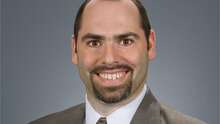 Dan Schaffer is a networking and security expert with over 20 years of industry experience specializing in network design, security and troubleshooting. Dan is the Senior Product Manager for Networking and Security at Phoenix Contact USA where he has held various positions since 2007 in product development and marketing. Prior to joining Phoenix Contact, Dan worked as a Senior Network Engineer for several private companies including Bookspan and Tyco. Dan holds a Bachelor’s degree from the University of Pittsburgh along with various IT and network certifications from organizations including Cisco, CompTIA, and Microsoft. Dan has supported efforts in standards writing for NEMA, ODVA, APTA and ISA, and is a member of several network and cybersecurity organizations. He is also Chair of the Products & Systems Digitalization Committee within Phoenix Contact, which is responsible for the discovery and evaluation of new and emerging technology, as well as the alignment of product roadmaps across business units to meet vertical industry demand.
Dan Schaffer is a networking and security expert with over 20 years of industry experience specializing in network design, security and troubleshooting. Dan is the Senior Product Manager for Networking and Security at Phoenix Contact USA where he has held various positions since 2007 in product development and marketing. Prior to joining Phoenix Contact, Dan worked as a Senior Network Engineer for several private companies including Bookspan and Tyco. Dan holds a Bachelor’s degree from the University of Pittsburgh along with various IT and network certifications from organizations including Cisco, CompTIA, and Microsoft. Dan has supported efforts in standards writing for NEMA, ODVA, APTA and ISA, and is a member of several network and cybersecurity organizations. He is also Chair of the Products & Systems Digitalization Committee within Phoenix Contact, which is responsible for the discovery and evaluation of new and emerging technology, as well as the alignment of product roadmaps across business units to meet vertical industry demand.
| 07 Oct 2019 | Submission of structured abstracts for full and short papers; Submission of proposals for special sessions |
| 15 Oct 2019 | Invitation to submit a full paper or short paper |
| 22 Nov 2019 | Submission deadline for complete full and short papers as well as Work in Progress, Demos, Poster, Tutorials, Workshops) |
| 22 Nov 2019 | Submission deadline for Special Sessions papers |
| 27 Nov 2019 | Submissions for GOLC OnlineLabAward 2020 |
| 01 Dec 2019 | Notification of Acceptance |
| 15 Dec 2019 | Camera-ready due Late Paper submission |
| 03 Jan 2020 | Author registration |
| 26 Feb 2020 | Conference Opening |